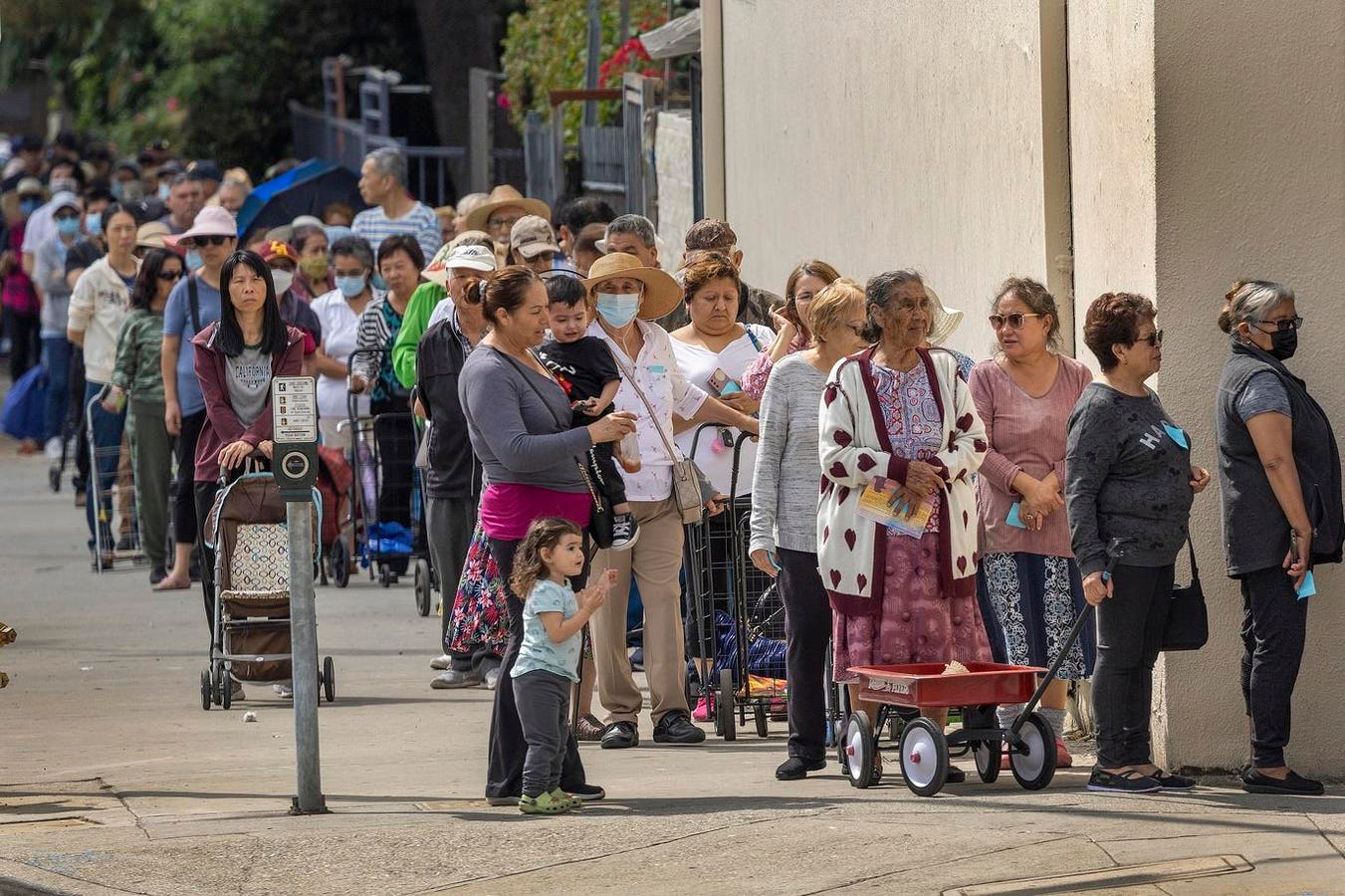Los Angeles, CA – September 21: Hundreds of needy people line up around the block to receive food … More
Low-income individuals that received regular monthly cash stipends visited the emergency department less, had fewer hospital admissions and participated in more outpatient subspecialty care according to an article in the Journal of the American Medical Association.
The authors of the study looked at nearly 2900 low-income individuals who applied for a lottery in Chelsea, Massachusetts. Of those individuals, about 1750 of them received $400 per month for a nine month period. The individuals that received money had 27% fewer emergency room visits compared to those that did not receive the monthly payments.
The aforementioned study underscores the powerful role socioeconomic status plays in shaping health outcomes across populations. So how exactly can income affect health? Below are some of the most important ways money can influence health and its related outcomes.
Access To Healthcare
Higher income generally translates to better quality healthcare services. Individuals with more money are more likely to have health insurance, which allows them to afford hospital visits, prescription drugs and preventive interventions. Conversely, those with lower incomes may be hesitant to receive healthcare they need because it is too expensive, leading to untreated illnesses that could be managed or even cured with early intervention.
In 2022, nearly 26 million nonelderly Americans were uninsured according to Kaiser Family Foundation. Nearly 2 in 3 (64%) of nonelderly Americans who were uninsured said they were because the cost of healthcare insurance was too high.
As an example, consider a low-dose CT scan of the chest that is done to screen for lung cancer. The out-of-pocket cost for the study is typically around $300, and insurance coverage for it is variable. Nearly half (44%) of lung cancers are caught at a late stage, with survival rates falling to just 7% according to the American Lung Association. With lung cancer being the deadliest cancer of all cancers, those with less income are less likely to be screened and less likely to find lung cancer at a stage where it is treatable and curable.
Living Conditions
Living environments are another critical determinant of health outcomes influenced by income. Wealthier individuals can afford housing in neighborhoods with lower crime rates, better schools and facilities such as gyms and parks that contribute to superior physical and mental health. Low-income individuals, on the other hand, may live in poor neighborhoods and may be exposed to environmental hazards like mold and air pollution.
Consider asthma, an obstructive lung disease that causes coughing, wheezing and chest tightness. Many allergens can trigger asthma, which include but are not limited to dust, mold and air pollution. Thus, those that live in poorer neighborhoods and are constantly exposed to these environmental hazards are more likely to develop asthma, which can be life-threatening if not treated appropriately.
Food Insecurity
One’s income can also have a profound effect on determining the quality and quantity of food one can afford. Higher-income households have the luxury of greater access to more nutritious food, while lower-income families may have to purchase cheaper, less healthy and processed foods out of necessity.
Healthier foods cost nearly twice as much as unhealthier foods on average per serving, according to research from the International Journal of Environmental Research and Public Health. Cheaper processed foods are usually higher in sugars, fats and salts. These types of foods contribute to poor nutrition and chronic diseases such as diabetes, heart disease and obesity.
Stress And Mental Health
Financial stability can also contribute to mental well-being. For example, those that live in poverty have to worry about their next meal and whether or not they will have food to eat. These worries can lead to a high level of anxiety and even depression, which can detrimentally affect mental health. It is of no surprise that those with the lowest incomes in a community suffer 1.5 to 3 times more frequently from anxiety, depression and other mental health illnesses compared to those with the highest incomes.
What can be done to alleviate the obvious and profound health disparities caused by income inequality? The obvious answer is expanding access to healthcare insurance for all populations. Currently, 44 million Americans are enrolled in healthcare coverage through the Affordable Care Act according to KFF News.
In addition, there must be a concerted effort by lawmakers and community activists to invest in safe and affordable housing, improve the availability of nutritious foods in low-income neighborhoods and expand important healthcare services such as preventive screening studies in an effort to decrease cancer in impoverished areas throughout the U.S.
Income and health are inextricably related, and so much work needs to be done in America to address health inequities caused by income inequality.








